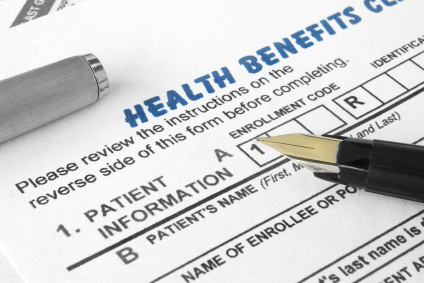By Kate Ranta on Nov 22, 2013 @ 03:32 PM
Dental insurance is one of those things that people will admit they might need, but because of how expensive it can be, may avoid biting into it at all. They assume they’ll never really need it.
The reason that cost may be so unappealing is that dental problems don’t really have a “catastrophic” element to them. While we might get health insurance to avoid running into life-threatening health issues that cost a lot of money, the same worry doesn’t always apply with dental insurance.
In all likelihood, the 42 percent of Americans who don’t have dental coverage are just paying out-of-pocket. They just hope that something like dentures or braces (which can cost several thousand dollars) will never be needed.
Who needs dental insurance?
Which brings us to this question: Who should actually pay a monthly premium for dental insurance?
The average price for an out-of-pocket dental plan is around $30 per month, while an employer based plan will cost you around $20 per month. It’s not much, but if you consider that the cost of the most common dental procedures is under $100 for those without dental insurance, you might be overpaying if you don’t need major dental care.
For those who do, it’s going to be on an as-needed-basis. At certain points in life, you’ll need insurance; at other points, you won’t.
For example, if you know your child is going to need braces or have wisdom teeth removed in the near future, it will make good, economical sense for you to enroll in an insurance plan. Keep in mind that follow-up work may be necessary, which means that continuing your dental insurance after the major procedures might be the best way to go.
If you have the luxury of knowing ahead of time that you’ll need major or ongoing dental care, you’re an ideal candidate to sign up for a low-cost dental plan, regardless of whether or not it’s through your employer.
It’ll be worth it either way.
What if I’m still unsure?
At some point, it becomes a matter of how much you value security over the money you would spend on a dental premium.
Odds are in your favor that a huge dental bill isn’t going to be a problem for you in any given year. But, that still doesn’t change the fact that you aren’t immune to it. Ideally, you would see it coming or have at least a heads up that insurance would be worth it.
Oftentimes, that can come in the form of a basic dental checkup. However, more often than not, those with healthy teeth and gums—and no real dental complications—will only go for these on a semi-annual or yearly basis.
But when you do make a visit to your general dentist, they are often good at identifying future problems. So, it might pay to ask questions and get as much information as you can. Make your decision about dental insurance based on that information, and your best guess at what kind of money you’ll have to spend on dental care without it.
Since the premiums are so cheap, you might be better off safe than sorry.
The Verdict
If you’re comfortable with the minimal risk and there’s no immediate evidence of a tooth or gum-related crisis in you or a family member, the less expensive insurance may be the best choice.
On the other hand, if you’re expecting a major dental procedure or you’re seeing signs of a dental problem that will take some time to solve, check the total cost of the plan with the expected cost of the procedure. If the procedure is more expensive, choose a plan that will cover the work and leave the rest to your dentist’s capable hands.
Today’s guest writer is Virginia Cunningham, a freelance writer and health enthusiast in the Los Angeles area. With the rising costs of prescription drugs and health insurance in the U.S., saving money where you can is a top priority for most families, especially with something as important as dental insurance.




comments